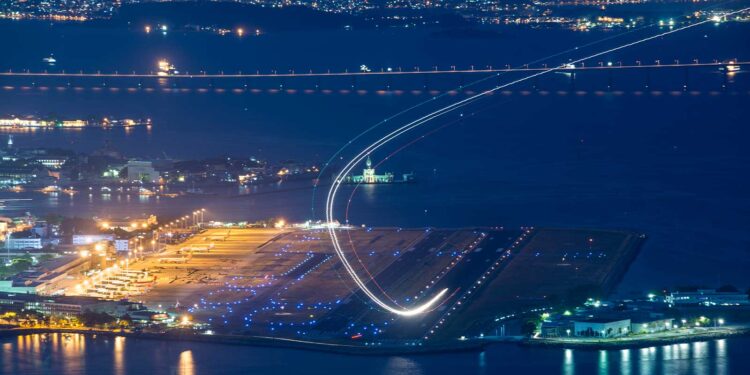Top Destinations for Brazil – Part 2: Parking, CIQ and Services

This is a post by author Adonis Bastos. Adonis is the Flight Coordinator at Universal Aviation Brazil, which has aircraft ground handling facilities in Sao Paulo, Brasilia, Manaus, Recife, and Rio de Janeiro. Adonis is an expert on business aircraft operations in Brazil and can be contacted at adonisbastos@universalaviation.aero.
This business aviation blog post continues from our article last week, entitled “Top Destinations for Brazil – Part 1: Airport Considerations.”
At many airports in Brazil it can be difficult obtaining aircraft parking and, in some cases, you may need to drop and go. Restrictions are in place at certain airports in terms of length of parking and size of aircraft. It’s important to consider any potential parking restrictions early on in the trip planning process. Additionally, customs, immigration, and quarantine (CIQ) clearance hours may or may not mirror airport operating hours.
The following is an overview of what you need to know:
1. Parking issues
Aircraft parking can be an issue in Brazil . If parking is not available, your 3rd-party provider and/or ground handler will offer solutions. In many cases, popular locations in Brazil have multiple airports available. Even if overnight parking is not possible at your preferred destination, you’ll be permitted to drop off/pick up passengers.
2. CIQ clearance
Regardless of your destination in Brazil, CIQ is cleared within the main terminal. Passengers stand in line with scheduled commercial passengers, unless the flight is diplomatic or an approved air ambulance operation. As CIQ clearance can take a long time – particularly at Sao Paulo Guarulhos (SBGR) and Sao Paulo Galeao Intl (SBGL) – it’s best to avoid peak periods of commercial activity. Outbound CIQ process also takes place via the main terminal.
3. Visas and vaccinations
If passengers require visas, these must be obtained prior to arrival, without exception. Crew who are listed on the gen dec and have a license (i.e. pilot or mechanic) do not require visas for Brazil regardless of nationality.
Update: Effective June 17, 2019 U.S., Australia, Japan, and Canada citizens will no longer need visas for tourist, flight crew, or standard business trips to Brazil.
Yellow fever vaccinations are recommended but not required. However, if you’re traveling on to other countries in the region, yellow fever inoculation may be required for operators who have landed in Brazil. Be mindful that yellow fever vaccination needs to be done a minimum of 10 days prior to arrival.
4. Language barriers
Brazil is a Portuguese speaking country. At smaller domestic airfields you may encounter language barriers, including air traffic control (ATC) services only in Portuguese. For operation to these smaller airport locations it’s best to talk with your 3rd-party provider to explore options of repositioning handing agents.
5. Landing permit requirements
Landing permits are required for all operations to Brazil. However, if you’re making more than one stop in country – even for tech stop purposes – a domestic permit is also required. Mandated documentation for permits includes aircraft registration and airworthiness, worldwide insurance and pilot licenses/medicals. For charter (non-scheduled commercial) operations you’ll also need to provide an air operator certificate (AOC). Note that all documentation must be valid for length of stay in country and must be the most recent documentation available.
6. Flight plan filing
Be aware that special requirements are in place for filing flight plans in Brazil. For example, you’ll need to note landing fee receipt numbers to indicate that this has been paid. Also, if you’re making a domestic flight you’ll always need to indicate your permit confirmation number on your flight plan. It’s recommended that you communicate with your 3rd-party provider regarding flight planning requirements.
7. Hotel options
Larger locations in Brazil have wide selections of 4- and 5-star hotel accommodations, including large international hotel chains. However, smaller domestic airports have more limited options but local hotels can be very good. At smaller locations you may have domestic hotel brands available but not major international chain hotels. Your 3rd-party provider and/or ground handler will be able to recommend preferred accommodation options.
8. Cabotage restrictions
There are cabotage restrictions to consider for any travel to Brazil. Cabotage is complex for this country, so it’s always recommended that you communicate with your 3rd-party provider for any such concerns. Also, you can find more information regarding Brazilian cabotage in our article titled “Business Aviation Trip Planning Tips: Cabotage in Brazil.”
Conclusion
Landing and domestic permit requirements should be requested as soon as a schedule is known. Be aware that CIQ clearance is done at the main terminal and the clearance time may be lengthy depending on your destination. Any person requiring a visa needs to have it prior to arrival without any exceptions. Also, it’s important to consider cabotage regulations and restrictions when operating to Brazil – for both private non-revenue and charter operations.
Questions?
If you have any questions about this article or would like assistance planning your next trip to Brazil, contact me at adonisbastos@universalaviation.aero.



